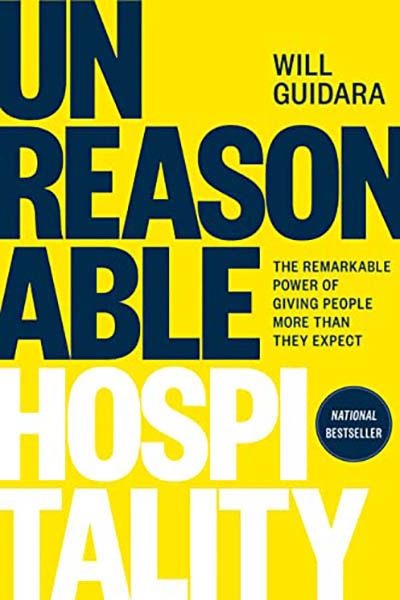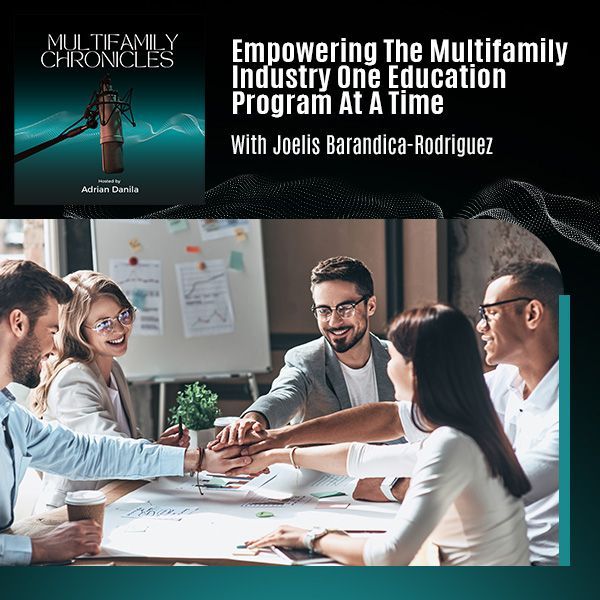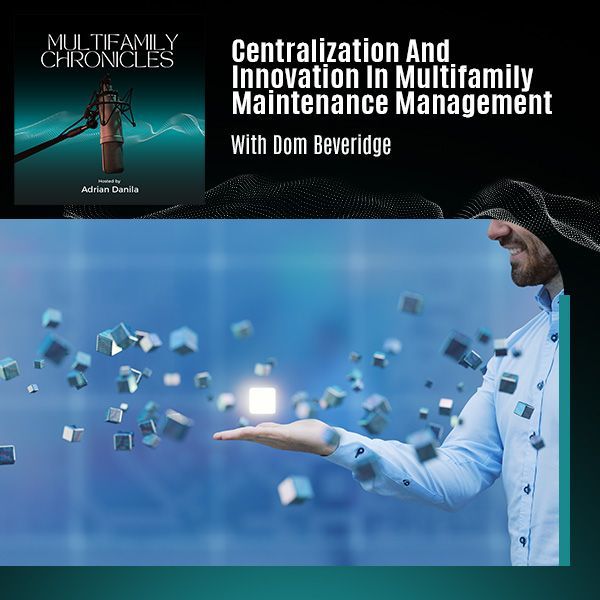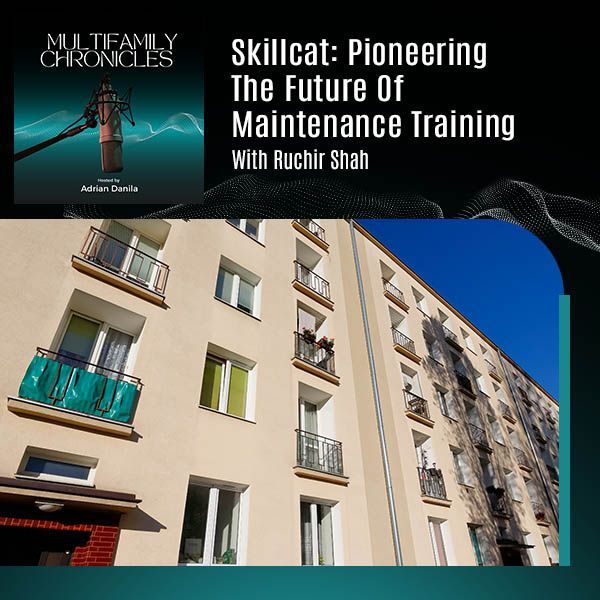Building Your Personal Brand In Multifamily With Trevor Park
Personal branding plays an integral role in the multifamily space, especially with how competitive it is. Being able to stand out from your competition is the key to success. In this digital age, you must know how to use social media to establish your good reputation, make yourself known to your target market, and increase your online presence.
Join Adrian Danila as he talks to the VP of Marketing at Rent Dynamics, Trevor Park. Learn more about PropTech and how Rent Dynamics provides value to the multifamily industry with trend reports. Find out more about personal branding, how to effectively market yourself, and how you can make it a win-win for both you and the influencer. Discover these helpful tips and achieve your desired results within the multifamily space!
---
Watch the episode here
Listen to the podcast here
Building Your Personal Brand In Multifamily With Trevor Park
My guest on the show is Trevor Park. Welcome to the show, Trevor.
I'm happy to be here. This is a long time coming. I’ve been watching and listening to your stuff for a long time, so I'm appreciative of you having me on the show.
I'm glad to have you here. For those of you in the audience that don't know Trevor yet, he's the Vice President at Rent Dynamics. Trevor, I want to start by giving you the chance to reintroduce yourself to the audience. Tell us a little bit about yourself and your background, personal, professional, or whatever you want to share.
I'm Trevor Park. I’ve been in the industry for close to ten years. I’ve been in a few different roles. I’ve been in both on the operator side with Greystar and Pinnacle. I’ve also been on the supplier side. Working in PropTech has been the big focus, and also some AI chatbots as well. I am now at Rent Dynamics and I'm happy to find a good home here.
How did you end up in multifamily?
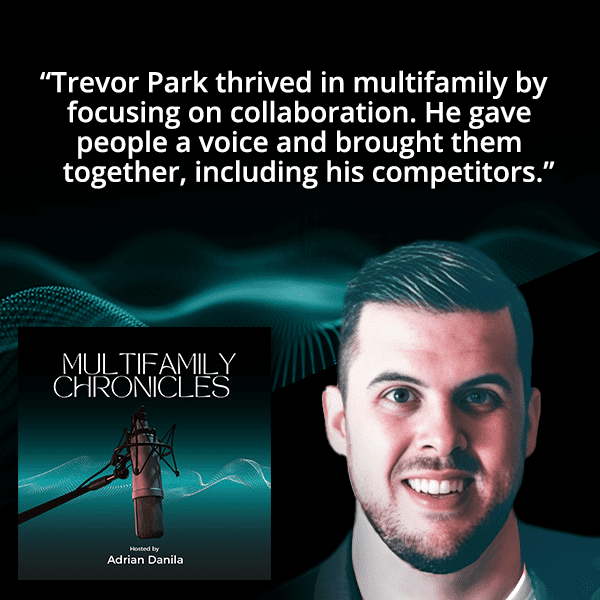
I would blame Curtis Cardoza, who I believe is now with Street Digital Media. He was working at Holland at the time, and we took a social media class at the University of Washington together. I had mentioned that I needed more than just one brand to focus on. I needed to have a little bit of variation in what I do. He was like, “You should try multifamily. It's going to have a whole bunch of branding projects at once.”
He was interviewing both Greystar and Pinnacle and got the job at Pinnacle. He was like, “You should try and take my interview slot at Greystar.” We reached out. Meghan Hill was accommodating. She was like, “Come on in.” I have a presentation ready. That's how it happened. I fell right in. I worked with Stephanie Robicheau, Alli Henning, and Lacy Devela out of the Seattle office. It was fun.
Tell us a little bit about your current role at Rent Dynamics. What do you do for them and then what are some great things that are happening at Rent Dynamics?
As you mentioned, I'm the VP of Marketing for Rent Dynamics. It’s a catch-all for all things marketing. I have an awesome team that we're also growing. Right now, we have a field marketing specialist. His name is Bryson. We have a marketing specialist named Issam, and we have a marketing manager we hired named Catherine. The way that we have focused our marketing org is towards revenue and with the go-to-market team that's led by Mike Wolber, our CRO.
Our focus is on how we can enhance what our sales and account management team are doing. We have the company brand as well. We support a lot of different projects that we're kicking off in 2023, certainly the 2023 Multifamily Trends Guide that we launched. I didn't expect it to be as impactful as it was, but we've had over four million impressions on it, which is very cool. There’s definitely a lot of growth in creating some strong partner-based content. The focus that we'll have for the year is who we can team up with, and who we can help support and shout out, as well as lift everybody else up. It's been fun.
You mentioned the 2023 Multifamily Trends Guide, which I was a part of too. Thank you for having me on. How did the idea come about? Show us some insights. How did this come about? How did it turn into a project? How did you end up with such great visibility? Four million views is something impressive.
Funny enough, I was playing around with ChatGPT and trying to figure out how I can use this to generate content or content ideas. I asked, "What's a piece of content that people resonate with at the start of the year?" It came out with a list of ten things. One of which was a trends report. I'm like, “That's interesting.” I started doing some Google searching to see if anybody does a trends report that's specific to multifamily. There are a few smaller pieces and stuff, but I feel like they're all from a singular lens. Their focus is on what trends are going to happen versus the greater whole.

I started dialing for dollars and asking if somebody wanted to participate. It was the day or maybe a couple of days after Christmas that I started DM-ing and texting people saying, “I'm going to try and put this thing together in about a week. Are you interested?” Everybody was on top of it. They got me a lot of good content that I spliced together and shipped it out.
You mentioned that things are typically one-sided. If a company does research, they use people from their own company to speak on the trends or whatever the subject might be. It's very rare when I see collaboration across the industry. You even brought people on from your competitors, people that provide the same services as your company does. You brought them on and you gave them a voice, which is absolutely remarkable.
There's a lot of value in collaboration, and also in teamwork. It’s doing things together versus competing against each other. There's a wealth of opportunities out there for all of us that we are competing with each other, but we don't have to kill each other in the process. There's enough for all of us. What's your take on that?
It's the adage, “A rising tide raises all ships.” If I can help support everybody to lift up and get to a certain level, that's my goal. I want to be able to connect people to other people. I want to be able to provide solutions to everybody. I'm not always going to have the solution or the answer. It’s like with Alex, he's with Funnel and I love picking his brain on stuff. We talk frequently. That's something that I’ve never had in a role before coming to Rent Dynamics. There's this mentality of better together, and it's one of our pillars. It's something I can strive for and connect with people. It's having that mentality that everybody can help solve the greater problems versus individual stuff.
People can solve greater problems versus solving a problem alone.
This is truly amazing and I look forward to seeing your next collaborative projects. There's a lot of value in that. 2023 will be a year where we'll see a lot of collaboration and a lot of great things out there in the market. The next topic that I want to touch on with you is you've been in an executive role. There are people aspiring to step up to an executive role. What advice would you have for someone who is that’s their goal? They're striving to become an executive for a company. What type of advice and what are the things that help you? What are the traits that help you get to the position that you're in now?
I don't know if I would necessarily recommend going the route that I went. I was very noisy when I wanted to get promoted or if I wanted to step up. I probably didn't do it in the most conducive way for management. I saw myself in a role like this and I kept working at it. Networking is probably the biggest thing. After I was laid off at the start of the pandemic, I leveraged my network to do odd-end jobs across multifamily. I had 45 clients at one point and I was juggling different marketing efforts and different projects. It helped me get more connected in the industry, especially at a time when there weren't a lot of job opportunities.
Being able to do contract work helped me get a feel for what was out there. It also opened me up to the supplier side. I had one initial job on the supplier side and I got laid off from it. I was a little tainted, but I kept working on it. I kept getting more involved with the projects. If you come from the operator side, you want to jump into a role where your experience is valued. The supplier side needs multifamily experience. They want that experience to come in. That's been helpful for me to come in with the couple of years that I have on the operator side, and leverage that to understand what my target persona is, which has been nice.
My background has been in maintenance, and then I stepped up into management, micro-managing portfolios, and things of that nature. Maintenance is very close to my heart. I do want to ask you this because you worked on the operational side too. Do you see any value in the service teams and the maintenance teams being incorporated into a company’s marketing efforts? We're talking about management companies. What is the value? What type of value are the service teams bringing to the table when it comes to marketing efforts?
First and foremost, it's given a voice to the roles. With the struggle that the industry has been having in finding good people to fill those roles, it’s being able to highlight the ones that are currently in it. It’s like what you're doing and the platform that you have to be able to talk about your experience and the industry from a lens of service and maintenance. There are not a lot of people out there talking about it, and being able to open them up to more marketing campaigns.
If you have a talented maintenance person, get them on TikTok. Have them start doing how-to guides and like, "This is how you fix that." Have them on your resident portal with, "Here's how you clear out your drain clog. Here's how you plunger your toilet. Here's how you fix your shower head." Those very basic tasks, but showing them and having them that voice to make their job easier because people have the resource now available to them.
It gives them more of a platform to draw more people in and say, “That's a role that I would like to do and I do that well.” There's a huge value in it. Having more maintenance staff talk about what they're doing and how they value their role is going to be what brings people back into that industry specifically for that.

Attention is one of the things that you mentioned. You don't phrase it that way, but you’re basically mentioning attention. You're drawing attention to yourself, your brand, and your company’s brand. Sales need attention. If you want to sell, you want to get your potential customer’s attention. Recording these sales, the jobs that you're selling to your potential applicants are products. Do you agree with this? Do you agree with the statement?
My first experience was when we were hiring for a role when I was at Pinnacle. We were hiring for our marketing manager to support Oregon. I went to our sales reps. Our sales reps are the ones that had their pulse on everything. They knew who wanted to move. They knew who had maybe left a job. They knew who had openings. Ever since then, my favorite go-to person has been Kimberly Cameron. I'll send her a text like, “I have these headcounts and I'm not going to post them yet. Do you know anybody that's looking for a marketing role? I have three leasing agents that I met with that are looking to make a shift into property manager. Do you know anybody that's hiring?”
She's so well-connected. She's always the go-to for me. I see that happening more and more with sales like Mike, our CRO. I'm pretty sure if he were to start a tally of the number of people that he's helped connect in the roles, he'd fill up an entire wall. That stuff is huge to see how sales are not only using their platform to sell, but they're using it to connect and it's powerful.
Sales is not just about selling. It’s also about connecting.
When it comes to recruiting, what I'm mostly seeing in most management companies is LinkedIn and other social media platforms are being flooded with vanilla content. It’s very sanitized. There's no soul in it. You're looking at it and it looks and feels like plastic. Everybody uses the same canvas. They just change a few colors and a few words on a text, and they're flooding the internet.
The reality is that once you see that type of approach, as a candidate, they all look the same to you. You tend to look the other way. Wouldn't it be better for management companies to embrace a different approach to do maybe more content? I understand the impact that raw content could have on a company brand.
We don't want to be like, “This is our brand. We pay for it. We want to keep it consistent.” When it comes to side job openings to a service manager, maintenance technician, or groundskeeper, do something fun. Share something about what's going on at your property versus putting a camera up and hoping that all of a sudden people are going to come breaking down your door and dying to work for your company to fill your positions. Do you think there's any value in just being different?
I definitely think being unique in your approach is going to be the way that you stand out. The tough part is where we could get into a topic of centralization. We could get to a topic of specialization. When I first came into multifamily, it hadn't changed much the last time I shadowed a role. I shadowed every role from leasing agent to maintenance manager to property manager to regional. I did that again a year and a half ago. I feel like there hasn't been much change in the sense that your leasing agent, maintenance manager, and your property manager have twenty hats on. When you start to think about who owns the social media piece, if you have a marketing team that's centralized or regionalized, they probably are the ones that are helping drive content, but they can only do so much to spread it out.
When I think about tools like SOCi or Reputation.com and all these different social media tools, they create this beautiful library of resources, but you can only personalize it so much so that the stock photography is going to get nuts. It's something that continues. I see the same building. There's this white building that's used in almost every single stock photography, and I’ve seen it for years. I find it funny that stuff hasn't changed in so long. It's the same thing for social. You don't have the capacity to work on it, so you're going to default to the standard. Marketing teams are going to create the resources for you, but they can't personalize it to a degree because there are limited resources there as well.

If you can start specializing your property teams to where maybe there's one social media manager for every 10 or 20 properties, whatever makes sense in terms of the workload, they could coordinate events and the social campaigns for it. They could drive around and do the actual photography so that they could take pictures at events. That stuff goes a long way if you have a single role that's responsible for it versus expecting the onsite team to create the brand presence even more. They'll own the brand and they'll drive the brand forward, but they won't be able to do the marketing on top of the leasing and on top of the virtual tours or the tours themselves. There's a lot of stuff that they got to pick and choose.
That’s probably something along the lines of collaboration between those departments like marketing. They could use pieces of content that the site could film for 30 seconds to a minute short video and send them over. They could tweak them and they could make them into unique pieces of content. That would be very valuable.
If SOCi had an app where a maintenance person could film a piece of content and upload it to the app, and then the marketing team reviews it and approves it, that could be cool. Even the leasing team, if they're in an event and they're taking all the photos. Obviously, quality is going to vary. I know some people that are going to put their thumb over the camera halfway, and so they're not going to be good photos. There are also people that take beautiful photos. If you can have something where you upload it to a central spot, you have your marketing team approve it once a week, and then it gets scheduled. That stuff could be cool to have one tool that does it for you and helps with the approval process. It could be interesting.
The next topic I want to touch on is personal branding. We're all brands. As individuals, we are also brands. You are a brand whether you want it or not. How do you see the importance of being intentional in building your personal brand in 2023?
I definitely think that if you're in any level role, I can't think of a role level that you shouldn't start checking out where your brand is at. The first thing that I did when I got into marketing is I bought a domain for my name. I bought TrevorPark.com. I held onto that thing for probably six years before I even did something with it. I didn't do anything with it at the time. I put my resumé on. It was a very simple page. From there, I started connecting with people and it made more sense to start sending them to a website where I could brand it and make it more like me than a standard PDF resumé.
There is no role level that you shouldn't start checking out where your brand is at.
I don't look at resumés anymore. Those are so outdated and so not worth looking at. If you can create a website for $30 and send me the link to that, and show me your personality, that goes a lot farther than the resumés these days. Creating a personal brand on LinkedIn, TikTok, or Instagram, those elements go so much farther now because you can see more of that person. They pass the, "Do I want to have a beer with this person? Do I want to have lunch with this person? Do I want to work with this person?"
Those elements can't be said in a resumé. Even in the interview process, it's always tough to get a full gauge of who the person is. Personal brands are going to go far, especially when people are wanting to make more shifts in leadership roles. If they're wanting to make more shifts into different companies, being able to leverage some online presence is going to go super far.
I want to peek at something that you said earlier on. It connects with personal branding, and this is networking. You mentioned a situation that you've been in in the past where you were in between full-time assignments. In order for you to fill that void, stay busy, make income, and keep things going, you were able to get all sorts of projects that you worked on. You were up to 40 or 50 projects at a time or juggling at the same time in between jobs.
How were you able to accomplish that? I'm assuming that networking played an important part in it. I would like for you to speak on the importance of networking. How important it is to spend time and build meaningful rapport with other people that you have never met or you might never meet in your life, but collaborate and network with them?
I got involved in a lot of different organizations. Pre-COVID, it was easy to do networking because you would show up to a happy hour, you'd show up to a tapas and topics, you'd show up to an association event or a trade show. I'm pretty lucky. I'm 6’9” and I'm hard to miss. I seek people out. I do my research like these are the five people that I am going to meet at this event. If I don't, then I failed the event. I’ve never missed the mark.
I always make sure that if I'm going somewhere and I know who's going to be attending, I'm introducing myself to those people. That's been the best way that I’ve networked. I'm a weird extrovert in the sense that I force myself into people's spaces. I'm like, “I'm Trevor. I want to introduce myself.” I'll pop out like, “Hi, nice to meet you. Let's catch up later,” and then I duck out. I create some awareness of myself beyond just being able to see myself. That has been important.

The next topic is related to the previous tool, and its influencers in the industry. I wanted to get your take on this. Do you see the value for companies, whether they're management companies or on vendors’ side in hiring industry influencers or people that already have a personal brand? They are very obvious out there. They're very well-known and respected. Do you see any value in hiring those types of influencers to help them boost companies' brands, and attract great talent to companies?
This is where I'm torn. If you hire somebody that has a big following and brand presence, you should come into the expectation that 50% of their role is going to be maintaining that brand and helping elevate your brand because you're tied to it. I’ve never been hired because I am well-known, but I’ve been hired because I can network well. The people that I’ve networked with are the ones that have been able to get me through the door. In terms of presence, that's been a tough piece. It's something that I’ve heard more and more people vocalize like, “I have 20,000 followers. I have 100,000 followers.” I want to still work full-time for a company and I want to tie my brand to that.
More often than not, it's coming in at a certain role. You might have somebody that's a regional or an asset manager that has 20,000 or 10,000 or whatever followers, but they're so bogged down with their actual day-to-day work that they're not able to maintain a brand presence. It trickles down. You have this give and take of how much brand I do and how much actual work I do, and then figuring that out.
If you hire somebody with the expectation that they have a big brand, make sure that their role has the capacity to handle both the brand ambassadorship and creating content that ties in the company brand and their brand, but then also being able to do whatever role you need them to do outside of that. There's definitely a balance to it. There is importance in hiring people that can help elevate your brand if it needs it.

Do you think that companies in 2023, whether they're on a supplier side or on a property management side, will consider becoming more intentional in making those types of hires? Do you see that possibility happening in 2023?
If we could start seeing numbers in terms of what's the return that this person's role is going to get us, that will help push it forward. I don't know if we're quite there yet to see a big push in influencer marketing because there's so little data that supports it. If we could start showing that I hired Sally as a leasing agent who has 100,000 followers on LinkedIn specifically to promote our brand to property managers, that's where I'm going to try and connect the dots.
How many property managers then reached out to our company for demos? How many of them signed deals? How many of them became lifelong customers? That kind of stuff. That's where we can start to generate the return. It’s the same thing on the management side. I hired this brand ambassador or this influencer. How many applications did we get to come work for this company? For Tony at RPM, how many people have come to work for RPM because they're aware of Tony's branch? How many people have come to work for Sage?
Even your company. How many people have come to work for you because they're aware of the content that you're putting? That kind of return is interesting because then you can say, Mosha brought in these seven leasing agents and they leased up these twelve properties, which generated this revenue.” That's all stuff that can tie back to Mosha's efforts. Being able to tie those efforts back into a dollar amount is the way that we're going to move that role forward. Until then, it's going to be a little bit slower.
I can't speak for Tony or Mosha, but probably what you're hearing right now is in line with what you're going to hear from them. It's in line with what I'm about to say. I had a specific experience not too long ago when I worked for a company that was growing fast. When you grow fast, you don't just grow. Most of your apartments will not keep up with that growth. They're coming from behind.
In other words, the recruiting department was not a department. We had a recruiter, but then there were so many needs to recruit. I stepped in and I helped. I offered myself to help. I did marketing. I advertised to my network. In a four-month period, I was able to recommend more than six separate individuals, but six of them got hired in four months based on my recommendations, my connections, and my network. I brought them in. They were all hired in management positions. I speak for myself. I'm sure that if you would ask Tony or Mosha, they'll probably have similar responses or even better than what I said.
Either way, you could almost see the impact that they've had on the role since coming on. You can start to attribute even more touch points to that impact that you were the originating source on. That's cool.
There's a way to track simply by the candidate saying, "I was recommended by Trevor." Simply saying that and taking note, or there are ways that you and I both know like smart leads that you could give someone when they do advertising on their page, for example. The list they're coming from based on that link is going to be attributed to the person. There are KPIs and ways for companies to gauge the influence of the person and how much the person influences.
You mentioned Tony's name. I think he's the best example that we have currently in a multifamily space of someone that's not just helping with the company brand. He's a driver. He drives the brand. He drives attention. He drives everything. We're talking about the industries here, and he's right here. He's driving. He gets so much positive attention and feedback. There are so many people attracted by Tony's brand that they want to go work for RPM because of Tony and for no other reasons. Let's be clear. With someone at that level of influence that he has, I bet that this could drive culture, and drive a company into spaces that they never saw possible before.
Even thinking too on people that are not at the executive level but are even entry-level. If I had an employee that was a rockstar employee doing extremely well, and we had a couple of roles that we wanted to almost clone that person to put into that role, I'd offer a referral bonus. I'd offer some incentive to have that person put their name on it and say, “We got this open role. I'm loving what this is doing. I'll get a referral bonus too as well. I would love to have you on the team,” and drive that. Make it so that if that employee sticks around for six months, then the bonus pays out. That's when you get your bonus because they've shown some longevity and they've made it past the entry-level stage. That could be interesting.
I'm definitely hopeful to see moves like that in our space and see how they're panning out for different companies. There are some players out there that will drive so much positivity toward a company brand, and be a complete game-changer for the way the company operates with its pipeline, culture, and everything. They could influence so many things and a single person.
We talked a little bit about influencer marketing. I want to touch on the part of influencer marketing. It's something similar that has been around. I'm thinking of Instagram. Influencer marketing has been around for years and is very popular. You have influencers helping push different products and services. They're helping with sales. Do you see that trend happening in the multifamily industry as well? In other words, a company like yours or a management company associated themselves with an influencer, with the main purpose of driving attention to the services they're selling or offering.
I guess it's two-pronged. From the management side, what needs to start happening is it's the management company that's driving the influencer versus the property. What's interesting to me is when I think about a property, it's a singular brand and it's a very isolated product set. It would be a limited release of one of Nike's shoes. Nike is the management company and the shoe is the building. That has an exclusive release like, “Get in early, pre-releasing now, buy your shoe, get your kicks, come in early.” The influencer can do a great job one time for that property. For longevity, it's tough because once they hit 92% or 93% occupancy, that influencer's role is done for 9 or 12 months, however long the lease lengths are.
That's a flash in the pan. I think about Central, Marriott, or Greystar coming in, and this adoption of Airbnb coming more into multifamily. There are a lot of opportunities where the management company owns the influencer and then sells the product from there. With this travel culture still on the rise, if you have an influencer that's talking about, “You should Airbnb at this spot in Austin, Texas next week. It is stunning. It is awesome. You'll get the vibe of Greystar and Central. It will give you all of the Instagram views.” They then start talking about the property that's in Nashville, and then they talk about the property that's in Seattle.
The reach of that influencer is so much further and impactful than like, "You should lease at this property in Austin." You hear from them consistently for nine months, but then they jump to something else. We had two influencers I worked with that worked solely for our property for nine months. We gave them room and board as an exchange, but then after that, they went to a competing management company and started doing the same exact thing. It meant that they took that following and moved it to the other management company. If you can keep that influencer central to your core brand and have them share it, that's where there are a lot of impacts there that you could do the selling on social.
When you're working with influencers, keep them central to your core brand.
The next section of our conversation is I have some rapid-fire questions for you. Are you ready?
Hit me.
What are your favorite books? Professional, fiction, or non-fiction.
I got three for you. They're on my desk so I don't forget to read them. I have been into reading lately. I had a newborn coming up in a few months, so the first one is Moms On Call and The Good Sleeper. These have books that I'm obsessing over to try and make sure that my kid can go to sleep. I'm actively reading this one for a second time. It's Unreasonable Hospitality. It is a good read on how you can create meaningful moments. It's going to be a central point on the Aim Roundtable that I'm hosting with Katie Kane, Cynthia Powers, Laurel Zacker, and Chrissy Picker.
We're going to have a pretty good group there. This is going to be a good central book that we'll talk about there. I like cooking. It's a big passion of mine and focusing on my Hispanic and Mexican cuisine. If you know me, tequila is my love language. I'm currently going through Masa, which is corn. It’s boring, but you can do a lot of cool things with it. Those are the three books I'm reading.
Those are great shares and in so many different various categories. I love that you're spreading your time there in so many different parts of life. I love that. Thank you for the share. Next question. How did a failure set you up for future success?
This is my personal favorite. I left my job in multifamily for a big price tag or big dollar amount. I'm like, “This is going to be awesome. I'm getting to a salary level that I’ve always wanted. This is great.” It was a very toxic work environment and I got completely run dry. I ultimately ended up getting fired from it. I consider that to be a big failure. It was very tough for me to maintain the culture there. I was let go and it was a mutual thing because I was going to be putting in my notice for it. I jumped back into a multifamily and hadn't looked back.
That failure is focusing on the dollar amount and not focusing on culture and people. The multifamily industry is one that's hard to compete with. I’ve seen a lot of different industries. Multifamily is one where the connectivity is endless. That helped me resonate with like, “This is an industry I’m sticking in and staying in.” That failure helped me learn that. I haven't left since.
Multifamily is a competitive industry that boasts endless connectivity.
Next question. What advice would you have for a young person getting ready to enter the real world? They finished high school or college. They're ready to rent or buy their first home, get their first job, and so on and so forth.
Be patient and hungry. I would say not everybody is going to be leaving the workforce with a six-figure job. It’s not the nature of the beast. I went to college for four years. The best thing that came out of my college experience was the fact that I developed a strong work ethic because I met my wife there who would not let me miss a class. That's the best thing, other than the people that I met in college, that I took away from it.
The thing in college is it showed that I could do something consistently for four years. That's how I took college. Coming out of that though, I would say be patient for that perfect role. Take the jobs that you might not necessarily like to do but you can do. Do them well and exceed in those. My wife and I moved down to California, and my first job out of college was cleaning a gallery. That's all I did. I would tidy up and I would adjust the art to make sure everything was straight. I sweep the floors and take a couple of pictures here and there. That was my first gig until I landed a couple of event stuff. Be comfortable being uncomfortable so that you can find the role that you want to be in, and build it out for yourself.

What do you believe are behaviors or habits that have most improved your life?
Mike got me on this focus of being where your feet are. I have this toxic trait that I'm constantly thinking about 70 different things at once, which is great from a work standpoint because I'm able to pull in a bunch of ideas and do stuff. From a family-oriented and being present with my family, it's been tough. Focusing on where I'm at that moment is my big focus for the year. It is being present and balanced with the two. It's not an easy task, but being present is probably the best trait that wherever you're at, be there.
When you feel that you're losing focus or you're feeling overwhelmed, what do you do to get back on track?
I like meditating. I do about fifteen minutes in the morning now. I try and maintain some centering myself and processing what I'm going to do. The biggest thing is to create lists. I have notebooks upon notebooks that are full of lists of things that I need to do. Every day, I start a new list, “These are the things that I'm going to tackle for the day.” Whatever didn't get tackled from the day before, I find a way to move it over. Lists are going to be the biggest way that keeps me from being too anxious because I'm aware of what's in my scope. I'm able to deal with that right then and there. Anything that's not on that list, I'm not dealing with that.
The next question is a broad question, but I do want to get your take on how you see the future of marketing, starting with some about to become future trends in marketing.
The way that we come up with ideas is going to drastically change with the evolution of API and AI. Being able to have ChatGPT take an initial idea that we have and build it out into something with more substance and meat with little effort on our part. It can help take us from being just an idea person to getting moving on stuff. I see that happening a lot more and more in marketing. I came up with 40-some-odd prompts with ChatGPT. I entered those prompts into the system, and it kicked back out the 5 to 6 campaigns that I wanted to run within 2023. We're going to be testing those out and see how it works.

It's helping me specifically get past the idea piece and it helps me get more substance in that concept and then move forward with it because I can see the route going forward even more. The use of AI is going to enhance a lot of our roles and not replace them. I don't think there's ever going to be an opportunity for AI to completely replace what we do. There are a lot of opportunities for it to enhance what we're doing in a thoughtful way. I'm excited about what AI and that kind of stuff are going to bring forth.
You mentioned more trends that you are working on. What should we expect from Trevor in 2023 from a trends standpoint or project standpoint? Not necessarily trends. What other projects like the one with trends that you very successfully completed?
The next big one that we're kicking off is the Leasing Enablement Guide, Volume 2. We did it one way in 2022 and it had a decent impact. The way that we're going to change it up is it’s going to turn some heads and make people think about how we build content. That one I'm looking forward to and I'm hoping that we get started on that soon.
The other big one is how we do events. We’re starting a roadshow that's going to be a little bit different. It's going to be a little bit unique to the multifamily industry. Hopefully, it's going to draw a lot of attention and get people wanting to be involved to either listen or speak at these roadshow locations. We're going to be announcing that. We're going to be locking in dates and kicking it off. That's the big one that I'm excited about. It's changing how we do it.
I'll be definitely on the lookout for that. Your first project knocked it out of the park, the first trends project is what I meant.
It's going to be tough to beat that.
You'll be surprised. This is just the beginning for you and for your team because there's a hunger for this type of stuff. It has not existed in the space. Typically, it's each tribe for themselves. Occasionally, that produces great events and great ideas. I won't say it doesn't but then the value of bringing 10, 15, or 20 specialists across the board from the industry and bringing them together, even if it's not a physical get-together, but putting their arms together could be huge. That could be a rocket ship.
There is a lot of potential in what we can do to collaborate. Those barriers are getting less and less with the way that we can interact and understand the nuances and differences between companies. When you stack apples to apples with the CRM space, there is so much variation between the Fujis, the Galas, and the Cosmic Crisps than the Honey, the Granny Smiths, and all of those.
There are so many differences in all the different CRMs in this space. Understanding what your product does and knowing your market specifically, and then making sure that your market is very much aware of the scope of your capabilities are where it draws in that audience. Being more open to saying, “We don't do that, but they do,” is going to be what turns us from a salesperson to a resource.
Trevor, it was so great to have you on. This is an amazing conversation. I truly enjoyed it. I could have gone for a couple more hours easily. Unfortunately, we're wrapping up right here for now. I'm hoping for an opportunity to do a second or a third episode down the road with you if you have an interest. I do want to give you the opportunity in closing to say something you wish you would've said during the conversation that you didn't have the chance to say or to maybe answer a question that you wish I would've asked. Just something to wrap our conversation up with.
Let me do a quick look at the list of questions. The importance of meaningful work. That's something that I am happy to be at Rent Dynamics as a company. This project that we do is our supportive pride and supporting people's differences in the industry. It's something that I don't know why, but some companies are still hesitant to show and vocalize their support. Just being silent is not going to work anymore.
I'm happy to be a part of a company that allows me to share my own differences, as well as support the differences in my teammates and our industry. That to me is meaningful work. It’s being able to make sure that the work that you are doing day in and day out is supporting people and lifting people up. You can't do that if you aren't doing it equally and you aren't doing it wholeheartedly. If your company is able to do that, then that's huge. There's a lot of change happening, but I think there's still a lot more to come.
That's a great way to wrap up our conversation. Thank you for coming and for being a guest on a show. I hope that we have more opportunities down the road to continue this conversation.
I appreciate you and your willingness to chat with me. Your voice in the industry has been amazing. Thank you again.
Everybody, thank you very much for tuning in. I hope you will be back here soon. Have a great day.



